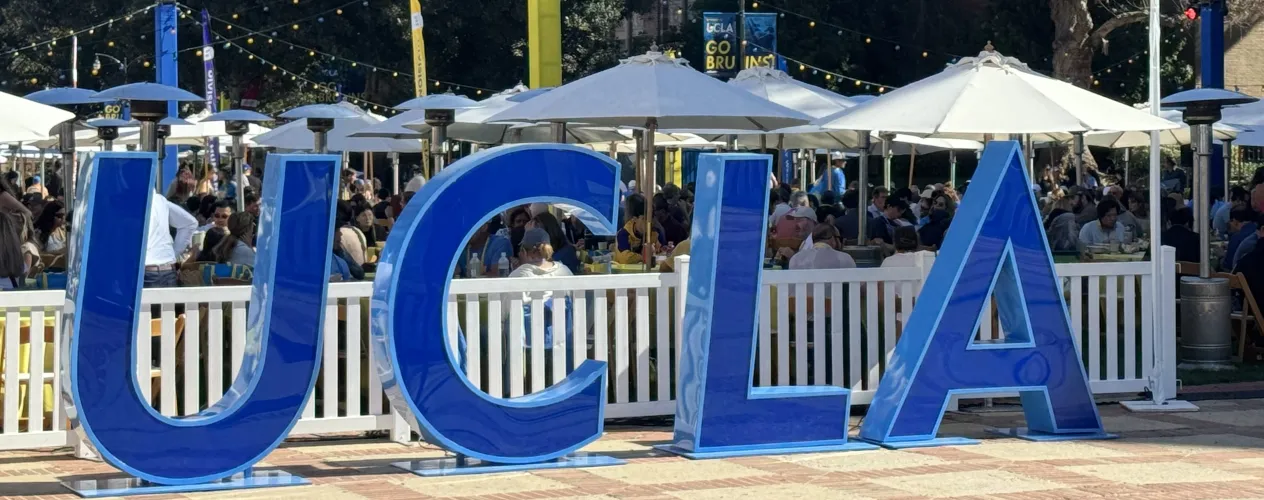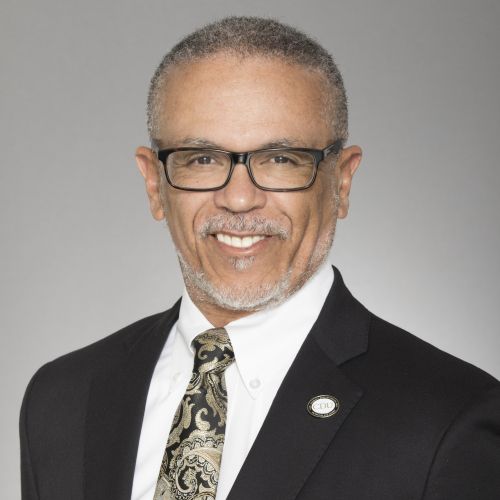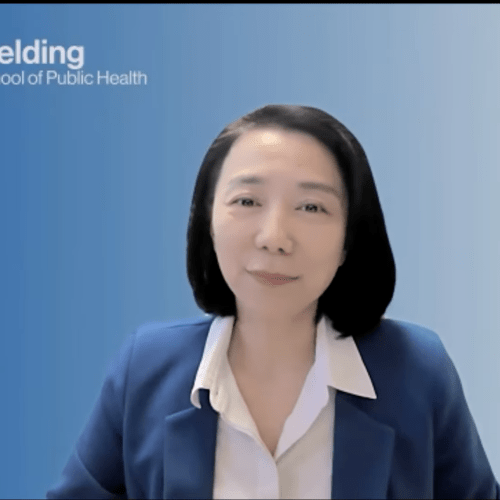UCLA Fielding presents at campus event for 3,000 students and family members
Faculty and staff present and take questions on research from undergraduates, parents, and guardians.

UCLA Fielding School of Public Health faculty brought the importance of academic research to an audience of more than 3,000, made up of new UCLA students and their families, at the annual Bruin Family Weekend events last week on the Westwood campus.
UCLA Chancellor Dr. Julio Frenk, a public health expert and member of the faculty at UCLA’s Fielding School of Public Health (UCLA Fielding), delivered the event’s keynote speech, including discussing disruptions in research funding being faced by many universities.
“We are working very hard to ensure that we can continue the discoveries that improve and save lives … our discoveries are enormous, and they touch every corner of our lives, and we're working very hard to make sure that we continue to be a top research university,” Frenk told a packed audience at Royce Hall during his speech. “We're also seeing extreme polarization, not just on college campuses but also in our national conversations; now, more than ever, we must stand together and stay connected.”
Frenk, a distinguished professor of health policy and management at UCLA Fielding, cited the long history of research at the University of California, which in 2025 set a world record for the most Nobels awarded to one university system. In addition, three UCLA faculty, including UCLA Fielding’s Dr. Ninez Ponce, were elected to the U.S. National Academy of Medicine, while two UCLA alums received MacArthur Fellowships, commonly known as “genius grants,” the same year.
“We want to be a collective university, one that builds bridges across disciplines and geographies, communities, and generations; we live in a world with a lot of connectivity, but not enough connection, and that's what we want to provide here,” Frenk said. “We want to be an impactful university, one that uses the knowledge created by research and art to improve lives and serve society as a public good. And we want to be an exemplary institution – an institution that models how people from all backgrounds and perspectives can come together to find common purchase and mutual respect.”
That commitment to excellence and research that powers progress is exactly why UCLA Fielding staff and faculty were pleased to participate in the Family Weekend, said Dr. Kyle McJunkin, assistant dean for academic programs, who met with students and their families during the event.
“It is a wonderful opportunity to invite the family and guardians of UCLA undergraduates into the UCLA community,” McJunkin said. “Speaking with students and family highlight the unique pathways students take to UCLA.”
The weekend included a series of lectures by UCLA faculty on their work, how it ties to the university’s missions, and the opportunity for undergraduates to work on research projects, including at UCLA Fielding. In 2025, along with some 360 graduate and doctoral degree recipients, more than 30 students graduated in 2025 with a bachelor of arts (BA) or bachelor of science (BS) degree in public health.
“One of my goals today is to give you a flavor for what some of your students would experience if they took one of my classes here at UCLA,” said Dr. Miriam Marlier, assistant professor in UCLA Fielding’s Department of Environmental Health Sciences. “The second goal of my talk is to share some of the research that we're doing here at UCLA, so I'm going to approach this very big topic of climate change and health through the lens of what I study - which is wildfires.”
Marlier, who spoke before an engaged audience in UCLA’s 500+-seat Schoenberg Hall, discussed her research and took questions from the audience about the public health impact of wildfires across the western U.S. That included work on the health impact of fire-generated fine particulate matter, generally referred to as PM2.5, smaller than the width of a human hair.
“Studies have linked smoke PM2.5 exposure to mortality; to respiratory conditions, aggravating asthma and chronic obstructive pulmonary disease, and there's growing evidence about the impact on the cardiovascular systems as well,” said Marlier, who is also affiliated with the UCLA Center for Healthy Climate Solutions. “Exposure to smoke PM2.5 may be more toxic to the human body than other categories of air pollution.”
Marlier made the point that her public health research team includes undergraduates, graduate students, faculty, and staff, from multiple academic disciplines across the university, which in turn brings strength and reliability to the results.
“The work that I've presented here is truly a team effort; (and) when we're thinking about these studies that link climate change and health, it requires an interdisciplinary approach,” Marlier said. “UCLA allows us to work across departments and foster that collaboration that makes this research possible.”

